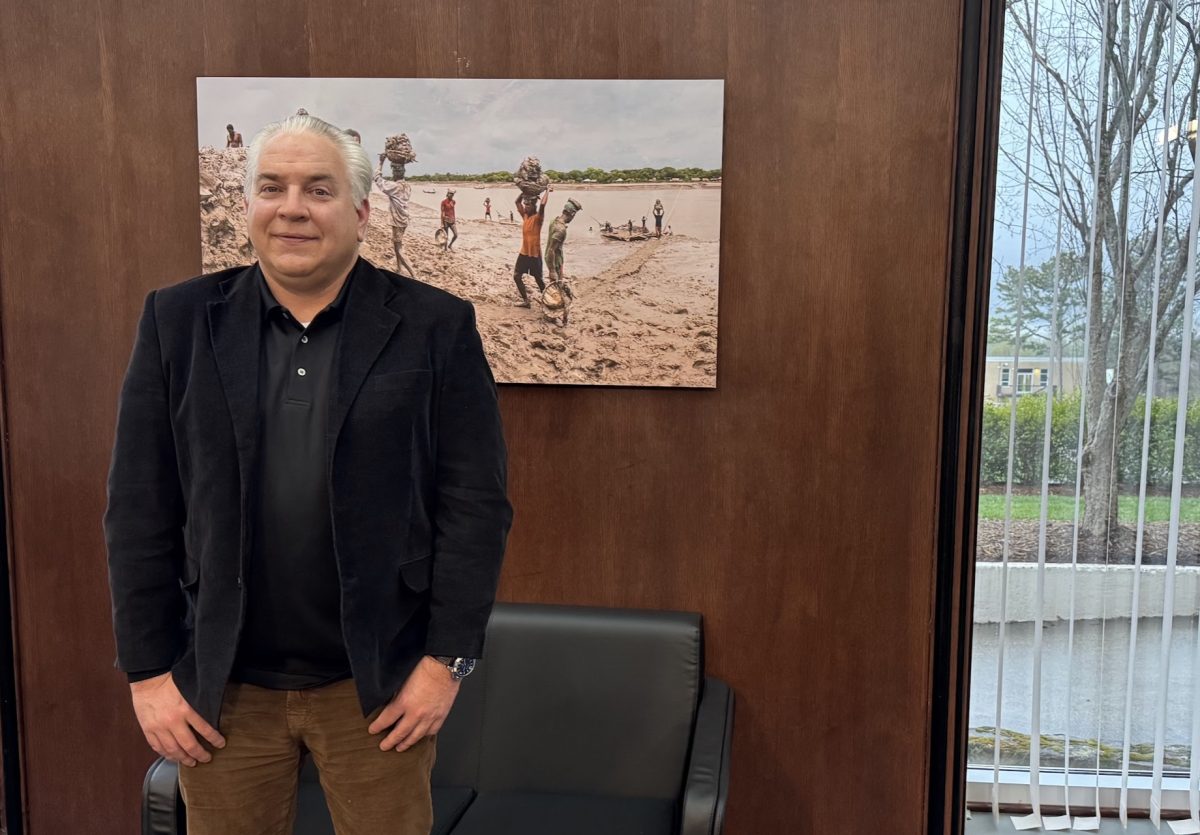For many students at UNC Asheville, the idea of studying abroad can seem out of reach financially. But what if going abroad could cost roughly the same as staying on campus? Thanks to a network of exchange programs and smart financial aid planning, studying abroad is more affordable than most students think.
“The exchange programs are quite popular because you pay UNCA tuition,” said Doug Rhein, assistant director of study abroad. “Because you’re paying UNCA tuition, it makes it more affordable.”
These bilateral exchanges allow students to pay their usual UNCA tuition while attending classes at a partner university abroad. In many cases, even housing and living expenses can be comparable. In places like Sussex in the UK, housing costs are similar to dorms at UNCA, Rhein said. In other cases, the cost of living may actually be lower.
“Students going to Tokyo are actually spending less because the cost of living there has gone down so much,” Rhein said. “You can go out and get a decent dinner for six or seven dollars. You can’t do that in Asheville.”
According to Rhein, even in cities with higher living expenses, students often find ways to make their budgets work. While Sydney is notably more expensive, other options like Seoul, Bangkok, and Brno offer excellent programs at a lower cost. Dorms in Seoul, for instance, can be as little as $1,500 for the entire semester.
Students can choose from study abroad programs lasting anywhere from a few weeks to a full academic year. While semester- and yearlong programs offer the deepest immersion, UNCA’s faculty-led trips during the three-week Maymester remain the most affordable. These experiences are thoughtfully designed by professors like Assistant Professor Anne Slatton who manage everything from cultural and historical context to travel logistics and budgeting.
“I book all of our lodgings and excursions. I come up with a budget that has a per diem because our students don’t pay for food while they’re abroad, and that’s important to us,” said Slatton, who co-leads the humanities-based programs in Ireland and Scotland with Sarah Judson, professor and chair of the history department. “We’re both moms and we’re like, we don’t want the thought of somebody that comes on the trip and then doesn’t feel like they can afford to eat, so I do the budget.”
Students attending programs through UNCA or through third-party affiliates such as the Center for International Studies or the American Institute for Foreign Study can often apply their existing financial aid. This includes the Helene-related Summer 2025 Tuition Grant, according to Chancellor Kimberly van Noort. The key is making sure the courses taken abroad count toward graduation. To ensure eligibility, Rhein helps students map their graduation plans and aligns them with course offerings abroad. This ensures that financial aid continues to apply.
“If you’re getting a FAFSA federal financial aid, or your Pell Grants, you can apply those to study abroad, as long as the courses you’re taking abroad contribute to graduation,” Rhein said.
According to Rhein, UNCA also waives application fees for Pell Grant recipients and offers additional scholarship opportunities for students receiving federal aid. Scholarships play a big role. He said students can apply for internal and external awards, and he helps them craft strong application essays.
“One of the things that I do is I help students write their application letters and scholarship letters. We had a student last term who got the Benjamin Gilman Award, which was $3500. He also got an internal scholarship for $2000, and another scholarship for $1000, I believe. That was a decent amount of money and then the organization he went with paid for his flights,” Rhein said.
Students interested in studying abroad in spring 2026 have less than six months to submit their applications. According to Rhein, tasks like getting coursework approved, applying for scholarships and scheduling passport appointments take time. To make the most of the resources available at UNCA’s Study Abroad office, he encourages students to plan at least a year in advance.
Working students like Dylan Machi, a sophomore mass communication major, consider ways to earn income while overseas. While labor laws vary by country, Rhein said options like promotional partnerships with study abroad organizations can provide stipends for work.
“They have a specific program where they will either subsidize your study abroad or give you a certain amount after you get back – a stipend to produce content with their logo on it,” Rhein said. “CIS does it. AIFS does it.”
Machi, who previously lived in Korea and traveled throughout Asia, hopes to join one of these programs to gain new experiences living in another country again.
“Probably more interested in Japan, or possibly somewhere in Europe because I like how accessible travel is there,” Machi said. “Cost will be the main factor in deciding where to go. That’s it basically.”


![Brooke Pedersen [second from the right] and Luis Reyes [right] hold banners during the Wrap The Woods event.](https://thebluebanner.net/wp-content/uploads/2025/09/ELIZABETH_PRITCHITT_IMG_3470-1200x804.jpg)















